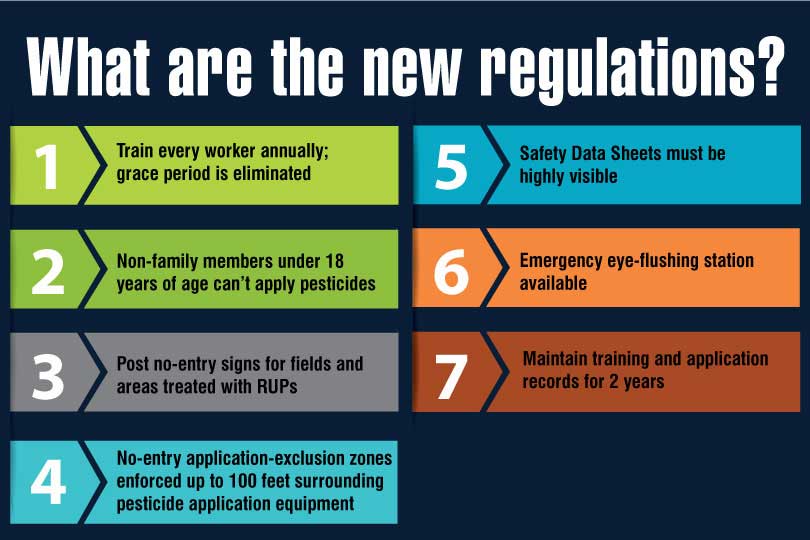The Environmental Protection Agency (EPA) has denied two agricultural organizations’ petitions to delay the implementation of the agency’s farmworker protection rule from Jan. 1, 2017 to Jan. 1, 2018.
EPA spokeswoman Cathy Milbourn told Bloomberg BNA in an email that the agency would continue with the rule as planned in January 2017.
The groups, American Farm Bureau Federation (AFBF) and the National Association of State Departments of Agriculture (NASDA), said EPA failed to provide state lead agencies with needed training materials and guidance.
The groups also said EPA had not properly alerted Congress to the presence of the “designated representative” provision in the rule.
The provision was not included in the final rule seen by the House and Senate agriculture committees.
The provision allows farmworkers to choose a third party to receive pesticide use records from a farm. Farm groups and their members are worried that anti-pesticide groups could gain access to the records and “make it seem as if (the farmers) are doing something illegal,” Paul Schlegel, director of Environment and Energy Policy at AFBF told Agri-Pulse.
The new WPS will require farmers to train every worker annually and eliminates a five-day grace period that had been afforded in the previous WPS. The new rule also restricts children under 18 from applying pesticides.
The rule introduces a number of new notification and posting requirements on-farm. Safety Data Sheets for each product used must be posted in a highly visible location.
NASDA urged the EPA to delay implementation until the 43 states that have authority to implement pesticide laws have adequate resources to do so, according to Agri-Pulse.
Virginia Ruiz, director of Occupational and Ecological Health at Farmworker Justice said the changes are “a step in the right direction to making the agricultural workplace safer.”
“Workers have the right to access that information already,” Ruiz told Agri-Pulse. “We’ve seen a couple of cases where workers were impeded in accessing important exposure information that would have helped them get medical treatment.”
However, Schlegel said AFBF supports the right of health care providers to have access to information and the organization never contested that.
“That’s dealt with in a separate part of the regulation,” Schlegel said.
AFBF objects to a controversial provision that allows third parties gaining access to records and doesn’t limit how they use the information provided.
Another concern AFBF has is about farmers’ legal obligations to provide information when workers use falsified documents to gain employment. He said the EPA has not clarified if farmers are legally obliged to surrender those records.
The agricultural organizations said in the petition that farmers need additional time to understand the rule’s Application Exclusion Zone requirements, which set a boundary around pesticide application equipment where only trained workers can enter.


So according to the EPA pesticides are all chemicals? So I guess that means that I can’t hire a high school kid to put on a ATV to spray roundup on turn roads and fence lines too?